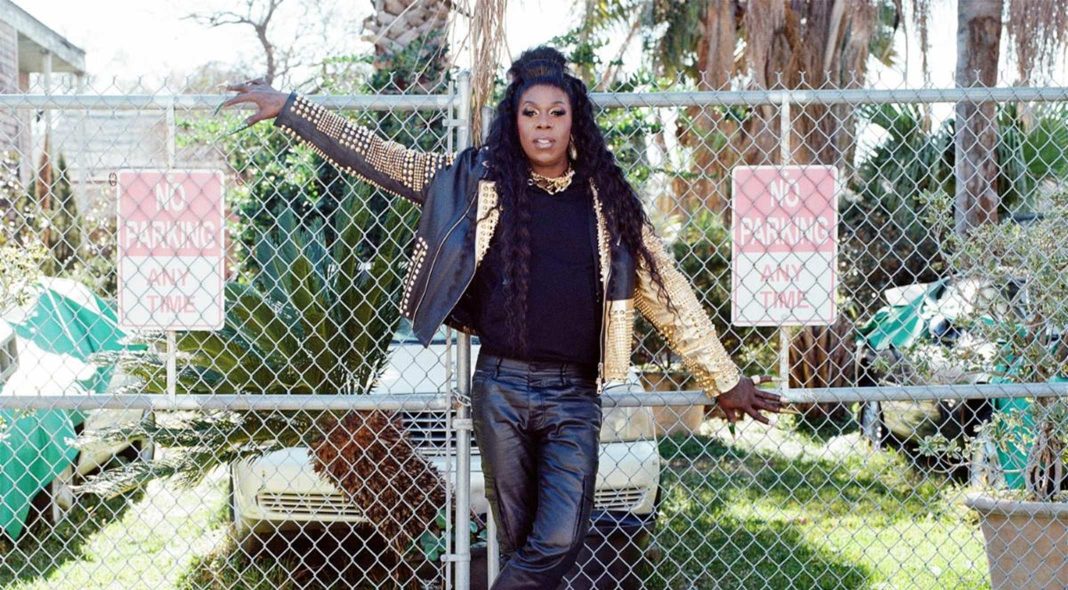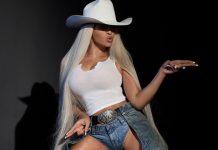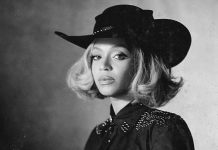You’ve heard her commanding voice everywhere. She’s implored you to release the wiggle, to come to slay bitch, to work your back off, to ask who is motherfuckin’ representing in here tonight. She’s worked with Beyoncé, Drake, Diplo, Lizzo, Kesha, Ru Paul and many, many others, soundtracking many summers and creating no end of essential memes, TikTok sounds and online-era catchphrases. In her own right, she’s released one scene-shaping album, and is well poised to do the same again later this month with her first new album in nine years, ‘Central City’. But who exactly is Big Freedia, and why is now the perfect time to hop on their twerkin’ adventure if you haven’t already?
In short, you might think of Big Freedia through her own chipper catchphrase; “Queen Diva, you besta believa”. Born Freddie Ross Jr. in 1970’s New Orleans (and using she, they and he pronouns), Freedia came of age in the 90s drag scene, introduced to a particular style of music by the queens who performed it. Known as bounce, it was a sub-division of southern hip-hop that you’ll recognise as soon as you hear it; hyper-upbeat, hypersexual, and with a call-and-response approach that is almost impossible to resist. Freedia themselves describes it as “a lot to do with ass-shaking”; to watch them dance is to truly see an expert at work, the heady blueprint for a great deal of dance culture that you see in music videos or onstage at festivals.
Firmly indebted to the LGBTQIA+ scene and to New Orleans, Freedia quickly became an enthusiastic ambassador for the sound. When Hurricane Katrina hit and communities were forced to displace, they took bounce out on tour across the country, before coming right back and helping to rebuild the energy of the city through block parties and club performances. Debut single ‘An Ha, Oh Yeah’ is a banger, but it’s 2014’s ‘Explode’ you need to check out as an entry point, a perfect mission statement of a record that embraces dance as a tonic for all the pressures of the world.
Recognise that sample? We’re not surprised. Built into Beyonce’s mega-smash ‘Break My Soul’, it’s the second time the pair have collaborated, melding minds on 2016’s ‘Formation’, an important political moment for both Beyoncé herself, and the Black community of New Orleans, released during their Mardi Gras celebrations. Adopted as an anthem in the Black Lives Matter movement and the Women’s March, Freedia’s vocal resilience is essential to the spirit of the song, and to unlocking the new phrase of Beyoncé’s artistry, paving the way for her full embrace of diasporic disco and trap on 2022’s ‘Renaissance’. The message is joyously, abundantly clear; queer culture is built into popular music, and it isn’t going anywhere.
Freedia’s collaborations with male rappers have also been notable. Hip-hop, with all its macho energy and braggadocio, has not always been that historically welcoming to gay or genderqueer artists, so to hear their voice on something as mainstream as Drake’s ‘Nice For What’ feels like a significant win for community visibility and recognition, even if Freedia’s lack of inclusion in ‘Nice For What’’s star-studded video suggests that the allyship did not go as far as it should or could have. Thankfully, things were somewhat rectified by Freedia’s cameo in the ‘In My Feelings’ visuals, a song that was clearly inspired by the unique flavour of southern rap.
Either way, to position Freedia only in his adjacency to mainstream artists is to entirely miss the point. This is an artist who is fiercely proud of their hometown and works hard to celebrate and elevate its rich community culture, staying close even as their star ascends. In 2013, music television channel Fuse aired the first season of Big Freedia: Queen of Bounce, in which the star can be seen balancing their ever-growing musical commitments with everyday homelife, taking time to raise funds for local charities. In 2019, Freedia founded Bounce Up, supporting local programmes in New Orleans that work with issues of housing, nutrition, mentorship, arts, mental health and sexual violence prevention. While her own music has mostly taken the form of shorter EPs, they’ve clearly been working hard on building their empire; a new TV show, Big Freedia Means Business, began this month and focuses on Freedia’s entrepreneurial spirit, launching an eyelash and makeup line, a cannabis line, releasing new music on a new record label, and founding New Orleans first Black-owned hotel.
.@bigfreedia is baaaaaack tonight and she means business! In control of her life and brand, her HUSTLE is off the charts. Watch the premiere of #BigFreediaMeansBiz tonight at 9PM ET on Fuse, Fuse+ and @wowpresentsplus! 📺 pic.twitter.com/cxe7gWpQIB
— FUSE TV (@fusetv) June 7, 2023
On the matter of that new music, signs are looking very promising. Lead single ‘Bigfoot’ sees them take on a more aggressive bounce style, playing with collegiate big band percussion in a manner that would be very easy to imagine booming out of car stereos this summer. According to reports, new record Central City is set to feature Ciara, Lil Wayne, Faith Evans and Kelly Price, tapping into what Freedia describes as ‘bigga bounce’; more hip-hop, more hometown culture, more energy.
📢 | Big Freedia talks if we'll see her on stage when the RENAISSANCE WORLD TOUR arrives in New Orleans
— Beyoncé Press. 🪩 | Fan Account (@beyoncepress) June 2, 2023
“Fingers crossed. Everybody keeps asking. Fingers crossed.” pic.twitter.com/WQn8KMo4qn
On the eve of a new release, now feels like a really good time for Freedia to get the UK respect they deserve in their own right, not just as a featured artist. Whilst recent pushback against the likes of Sam Smith suggests that there is still an awful lot of work to do in terms of our acceptance of artists who challenge gender norms, creatives like Freedia prove that true cultural pioneers will always command respect. The mainstream may not get them at first, but with hard work and perseverance, the distinctive sounds that they helped to coin will always make their way to wider ears somehow.
As musical history has shown, mainstream culture IS black culture, just as much as it is LGBTQIA+ culture. The sooner we fully embrace both, the better. Freedia may already be the assured Queen Diva on her own terms, but international respect and thorough accreditation is exactly what both she and New Orleans deserves.







